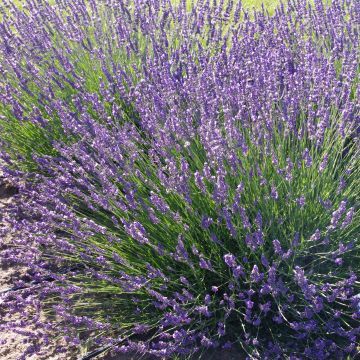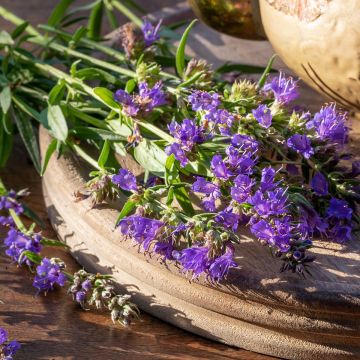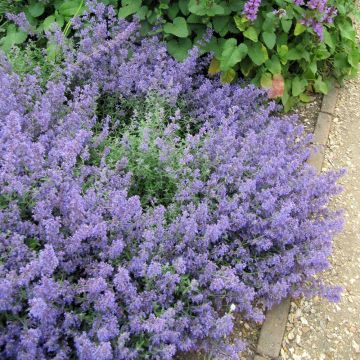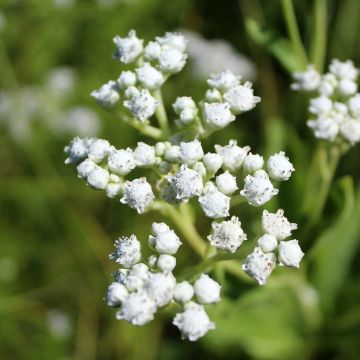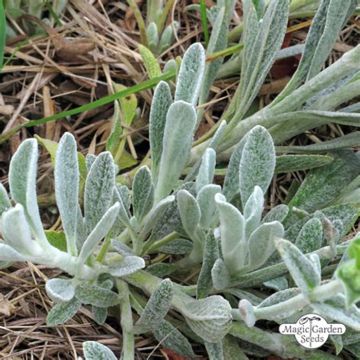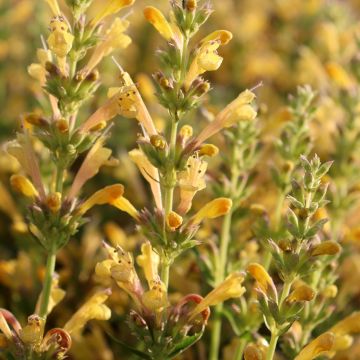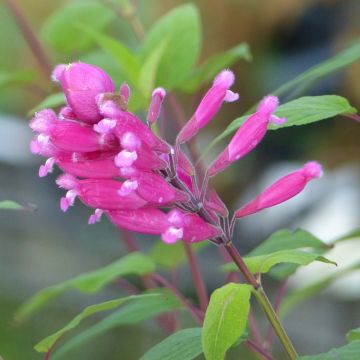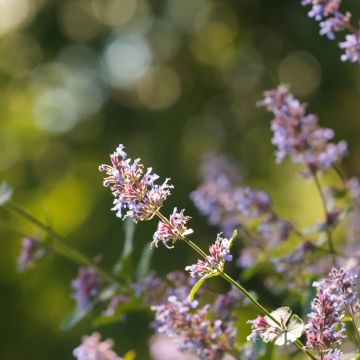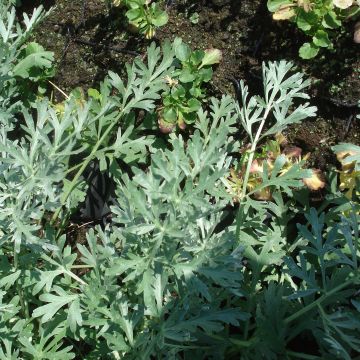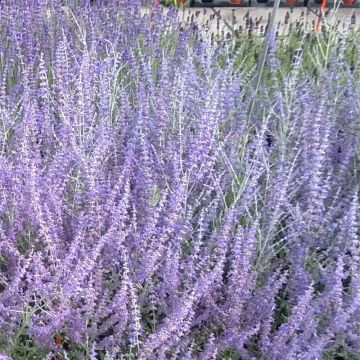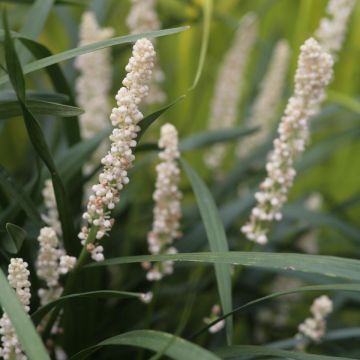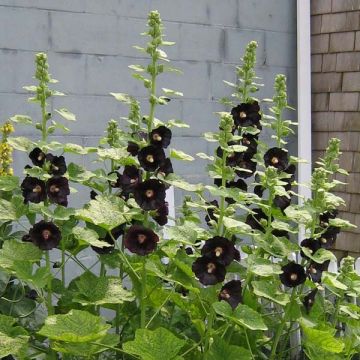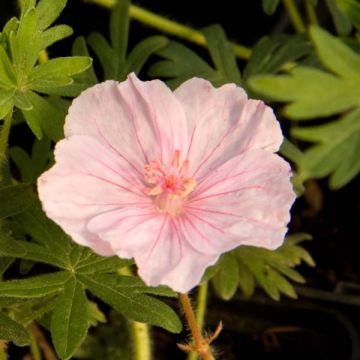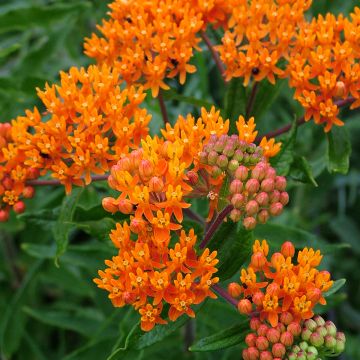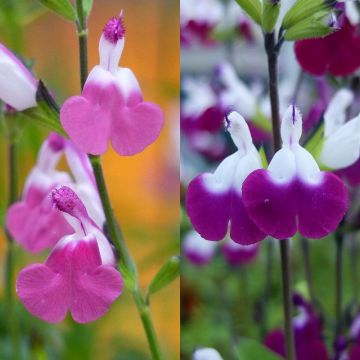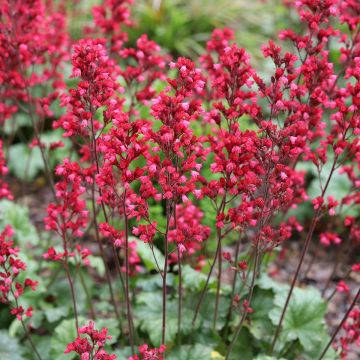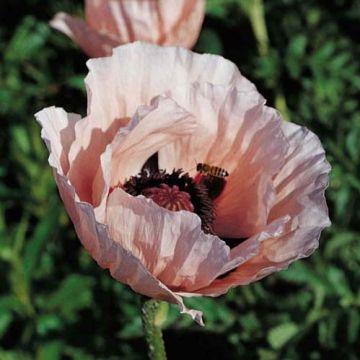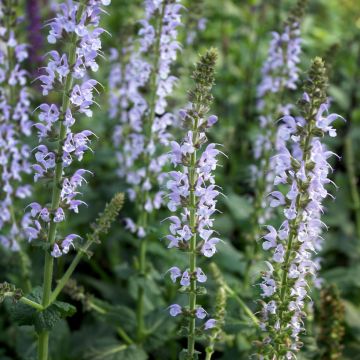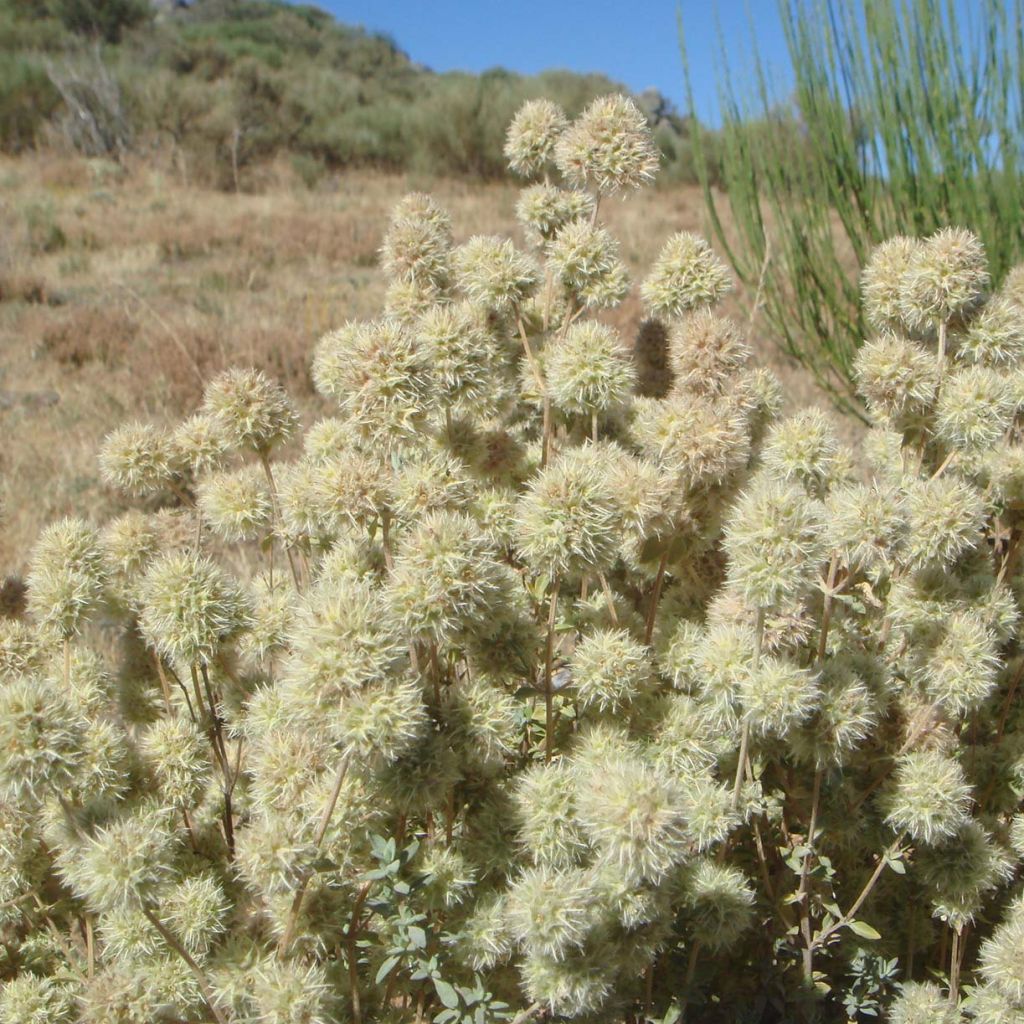

Thymus mastichina - Thym résineux
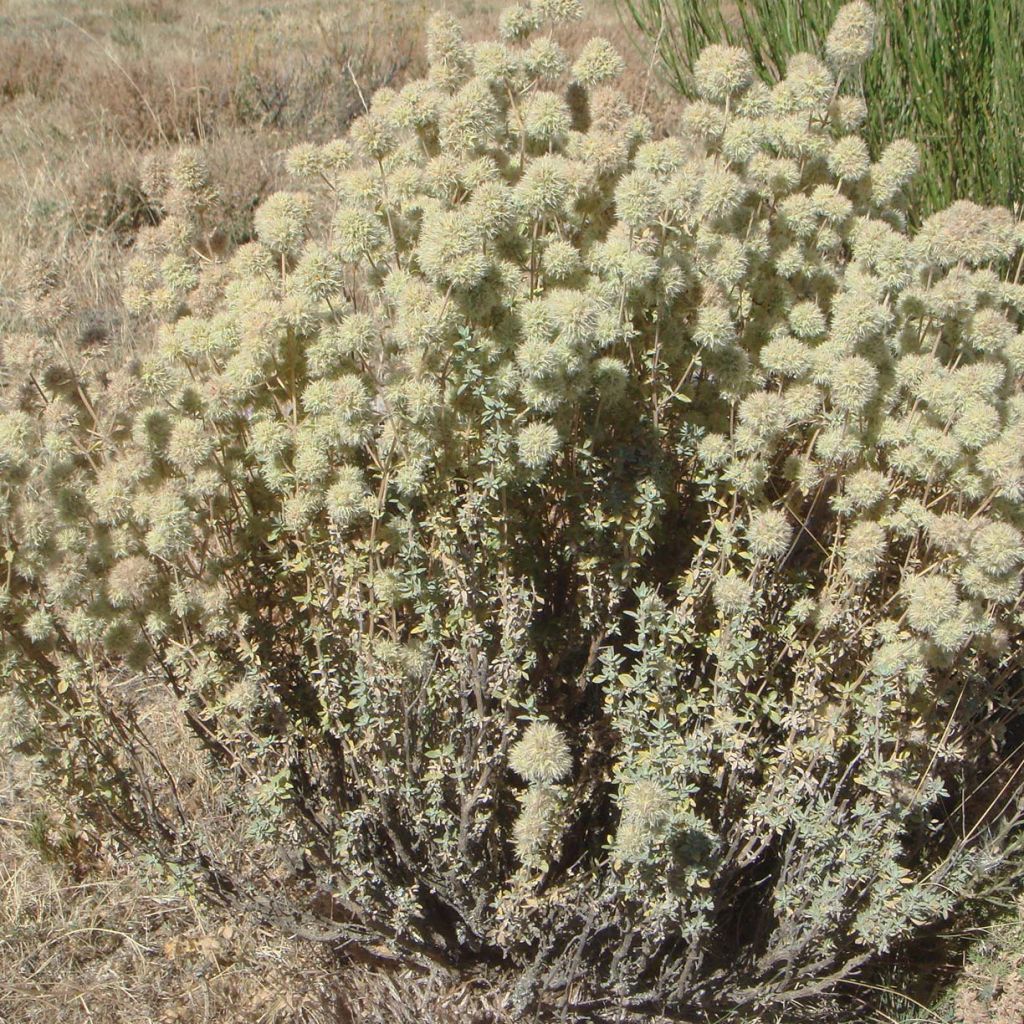

Thymus mastichina - Thym résineux
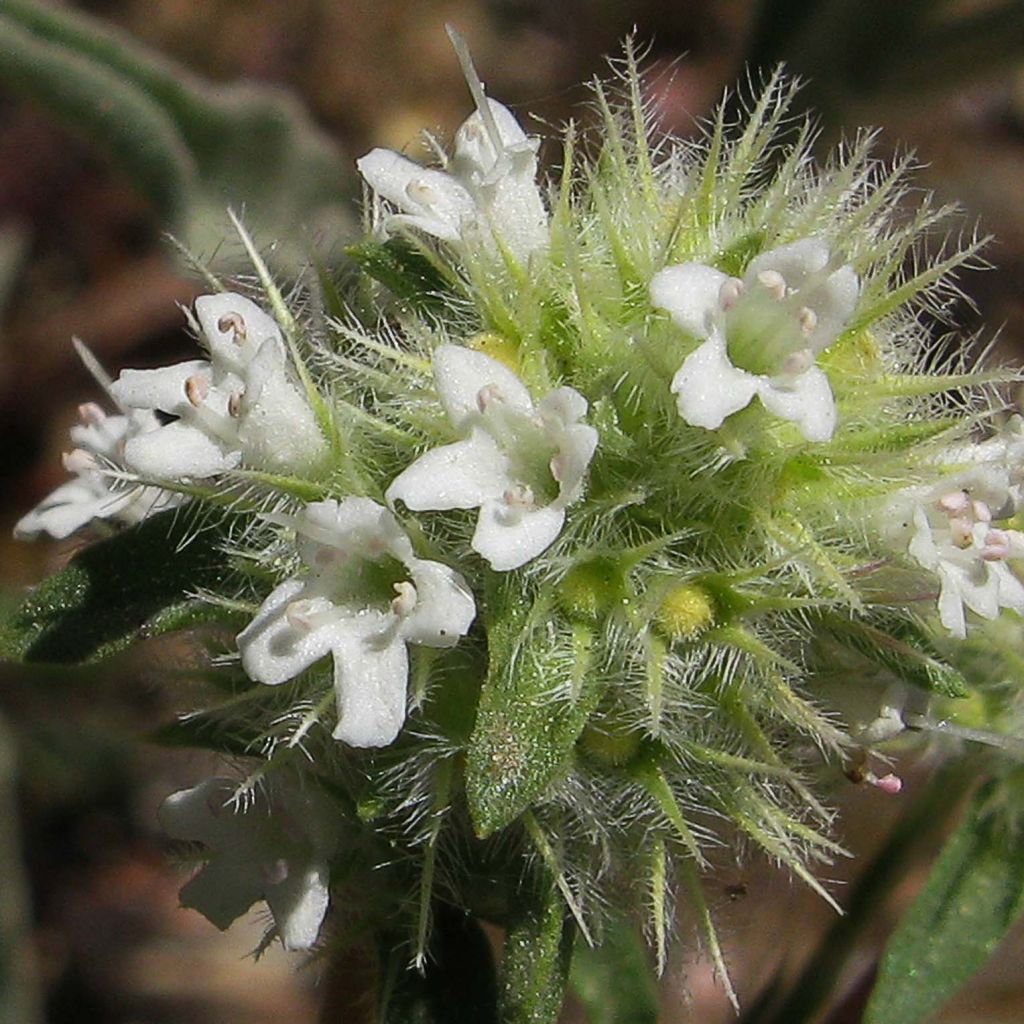

Thymus mastichina - Thym résineux
Thymus mastichina - Thyme
Thymus mastichina
Thyme, Herb Mastic
3 very beautiful young plants which, by the way, perfumed the package when I opened it, I love it!!!! Transplanted into a cactus soil, time will tell.
frederic, 23/05/2019
Special offer!
Receive a €20 voucher for any order over €90 (excluding delivery costs, credit notes, and plastic-free options)!
1- Add your favorite plants to your cart.
2- Once you have reached €90, confirm your order (you can even choose the delivery date!).
3- As soon as your order is shipped, you will receive an email containing your voucher code, valid for 3 months (90 days).
Your voucher is unique and can only be used once, for any order with a minimum value of €20, excluding delivery costs.
Can be combined with other current offers, non-divisible and non-refundable.
Home or relay delivery (depending on size and destination)
Schedule delivery date,
and select date in basket
This plant carries a 12 months recovery warranty
More information
We guarantee the quality of our plants for a full growing cycle, and will replace at our expense any plant that fails to recover under normal climatic and planting conditions.
Would this plant suit my garden?
Set up your Plantfit profile →
Description
Thymus mastichina is better known to aromatherapy enthusiasts than to gardeners: its flowering tops are used to extract the essential oil which has well-known antiseptic and expectorant properties and is widely used to treat colds, sinusitis, and other bronchitis. This evergreen undershrub has small silver foliage that releases a complex, penetrating scent with resinous and camphor notes when crushed. It blooms in spring, with pretty round white inflorescences that have a fluffy appearance. For gardeners, it is both a valuable plant for arid areas that are difficult to vegetate and one of the gems of the herb garden.
Originally from the Iberian Peninsula, Spain, and Portugal, Thymus mastichina is a botanical species belonging to the Lamiaceae family. In nature, it is found in the central and southern parts of Spain, rooted in rocky and sunburnt arid places. In Portugal, it is called 'bela luz', which can be translated as 'beautiful light', probably due to the gentle and luminous aspect of its flowering. This thyme slowly grows into a small upright bush with a slightly spreading and airy habit. It reaches an average height of 35 cm (14in) and a spread of 30 cm (12in). Its branches bear small silver and persistent leaves that release a fresh and intriguing fragrance when crushed, with hints of licorice, eucalyptus, and turpentine. In May-June, small spherical inflorescences composed of tiny white flowers enclosed in very hairy calyxes appear at the top of the stems, giving the inflorescences a fluffy appearance. This flowering, like that of all plants in the Lamiaceae family, attracts numerous pollinating insects. It is extremely resistant to summer drought but perishes below -12°C (10.4°F).
Thymus mastichina is primarily a sun-loving and dry soil plant, valuable for seaside or Mediterranean gardens that are spared from severe frosts that can be fatal to it in poorly drained soil. It finds its place in rockeries, gravel beds, or even along pathways. It can be associated with other thymes, marjoram (Origanum majorana), lavender, savory, rosemary, teucrium, cistus, and other cotton lavenders to evoke the scrubland in an arid area of the garden. One of the charms of such arrangements lies in the scents emitted by all these plants after a hot day: they blend together in a complex fragrance to be enjoyed with closed eyes - intense, captivating, it embodies the quintessence of the Mediterranean countryside.
Report an error about the product description
Thymus mastichina - Thyme in pictures
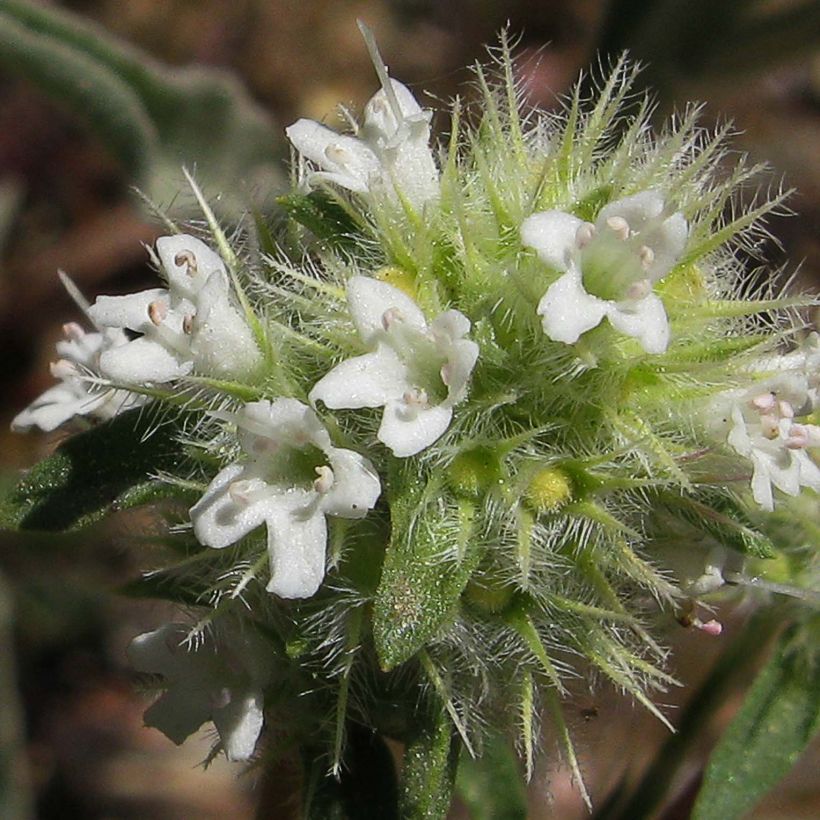

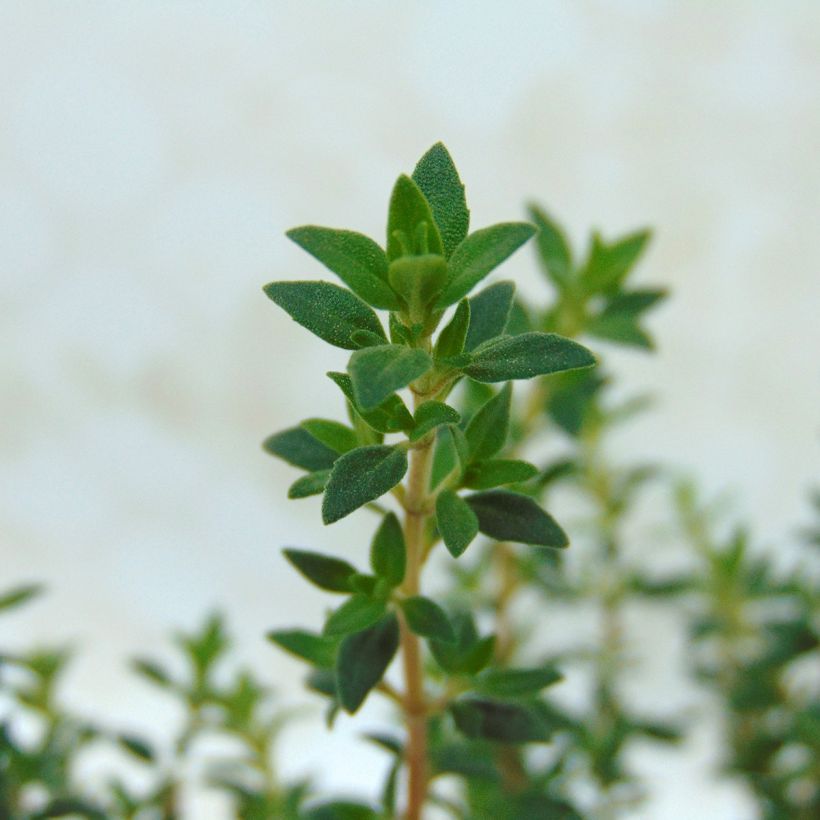

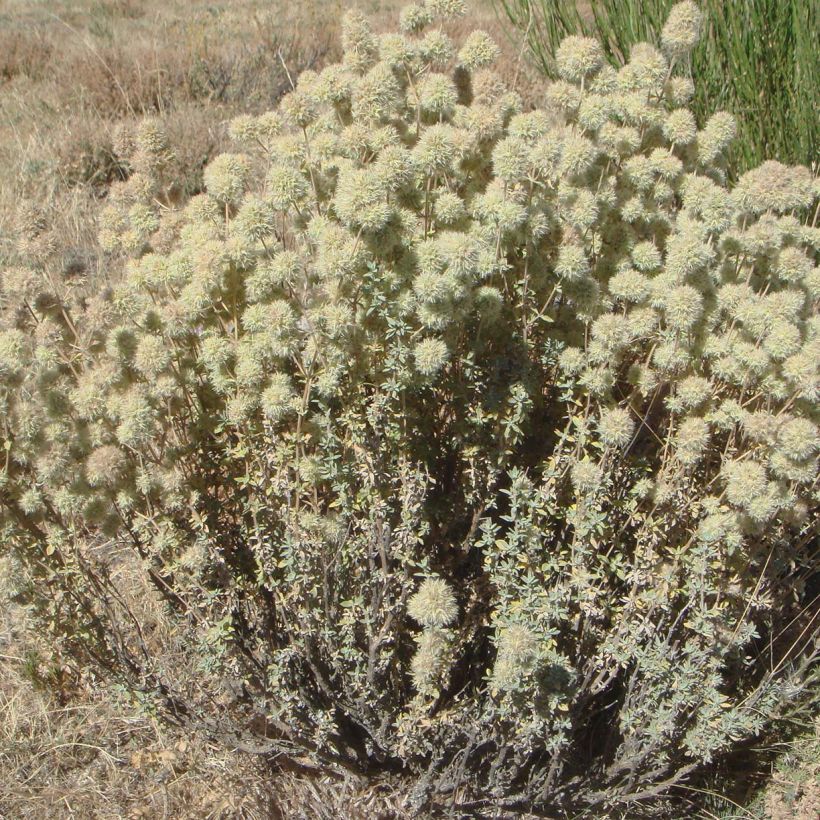

Flowering
Foliage
Plant habit
Botanical data
Thymus
mastichina
Lamiaceae
Thyme, Herb Mastic
Mediterranean
Other Herb perennials
View all →Planting and care
Thymus mastichina is a plant perfectly adapted to the Mediterranean climate. It requires full sun and a very well-drained, preferably poor, even limestone and rocky soil. It is an undemanding plant, well adapted to hot and dry regions, but resistant to cold to -12/-15°C (10.4/5°F) in very well-drained soil. It requires full sun and a very well-drained soil, preferably poor, even limestone and rocky soil. It is undemanding but fears heavy frosts that can harm its hardiness: Plant it preferably in early autumn in favourable climates, but after the last frosts. Like many herb plants it does not tolerate frequent watering in summer: the combination of heat and humidity in the soil can be fatal to it. Water this plant only as much as necessary for its establishment, favouring generous but spaced waterings (every 8 to 15 days). Do not provide it with compost or fertiliser, simply lighten the soil of your garden with a large amount of gravel and plant it in a raised bed or in a dry rock garden.
Regularly pruning them (on young wood), and after flowering, allows them to age better and remain compact.
Planting period
Intended location
Care
-
, onOrder confirmed
Reply from on Promesse de fleurs
Similar products
Haven't found what you were looking for?
Hardiness is the lowest winter temperature a plant can endure without suffering serious damage or even dying. However, hardiness is affected by location (a sheltered area, such as a patio), protection (winter cover) and soil type (hardiness is improved by well-drained soil).

Photo Sharing Terms & Conditions
In order to encourage gardeners to interact and share their experiences, Promesse de fleurs offers various media enabling content to be uploaded onto its Site - in particular via the ‘Photo sharing’ module.
The User agrees to refrain from:
- Posting any content that is illegal, prejudicial, insulting, racist, inciteful to hatred, revisionist, contrary to public decency, that infringes on privacy or on the privacy rights of third parties, in particular the publicity rights of persons and goods, intellectual property rights, or the right to privacy.
- Submitting content on behalf of a third party;
- Impersonate the identity of a third party and/or publish any personal information about a third party;
In general, the User undertakes to refrain from any unethical behaviour.
All Content (in particular text, comments, files, images, photos, videos, creative works, etc.), which may be subject to property or intellectual property rights, image or other private rights, shall remain the property of the User, subject to the limited rights granted by the terms of the licence granted by Promesse de fleurs as stated below. Users are at liberty to publish or not to publish such Content on the Site, notably via the ‘Photo Sharing’ facility, and accept that this Content shall be made public and freely accessible, notably on the Internet.
Users further acknowledge, undertake to have ,and guarantee that they hold all necessary rights and permissions to publish such material on the Site, in particular with regard to the legislation in force pertaining to any privacy, property, intellectual property, image, or contractual rights, or rights of any other nature. By publishing such Content on the Site, Users acknowledge accepting full liability as publishers of the Content within the meaning of the law, and grant Promesse de fleurs, free of charge, an inclusive, worldwide licence for the said Content for the entire duration of its publication, including all reproduction, representation, up/downloading, displaying, performing, transmission, and storage rights.
Users also grant permission for their name to be linked to the Content and accept that this link may not always be made available.
By engaging in posting material, Users consent to their Content becoming automatically accessible on the Internet, in particular on other sites and/or blogs and/or web pages of the Promesse de fleurs site, including in particular social pages and the Promesse de fleurs catalogue.
Users may secure the removal of entrusted content free of charge by issuing a simple request via our contact form.
The flowering period indicated on our website applies to countries and regions located in USDA zone 8 (France, the United Kingdom, Ireland, the Netherlands, etc.)
It will vary according to where you live:
- In zones 9 to 10 (Italy, Spain, Greece, etc.), flowering will occur about 2 to 4 weeks earlier.
- In zones 6 to 7 (Germany, Poland, Slovenia, and lower mountainous regions), flowering will be delayed by 2 to 3 weeks.
- In zone 5 (Central Europe, Scandinavia), blooming will be delayed by 3 to 5 weeks.
In temperate climates, pruning of spring-flowering shrubs (forsythia, spireas, etc.) should be done just after flowering.
Pruning of summer-flowering shrubs (Indian Lilac, Perovskia, etc.) can be done in winter or spring.
In cold regions as well as with frost-sensitive plants, avoid pruning too early when severe frosts may still occur.
The planting period indicated on our website applies to countries and regions located in USDA zone 8 (France, United Kingdom, Ireland, Netherlands).
It will vary according to where you live:
- In Mediterranean zones (Marseille, Madrid, Milan, etc.), autumn and winter are the best planting periods.
- In continental zones (Strasbourg, Munich, Vienna, etc.), delay planting by 2 to 3 weeks in spring and bring it forward by 2 to 4 weeks in autumn.
- In mountainous regions (the Alps, Pyrenees, Carpathians, etc.), it is best to plant in late spring (May-June) or late summer (August-September).
The harvesting period indicated on our website applies to countries and regions in USDA zone 8 (France, England, Ireland, the Netherlands).
In colder areas (Scandinavia, Poland, Austria...) fruit and vegetable harvests are likely to be delayed by 3-4 weeks.
In warmer areas (Italy, Spain, Greece, etc.), harvesting will probably take place earlier, depending on weather conditions.
The sowing periods indicated on our website apply to countries and regions within USDA Zone 8 (France, UK, Ireland, Netherlands).
In colder areas (Scandinavia, Poland, Austria...), delay any outdoor sowing by 3-4 weeks, or sow under glass.
In warmer climes (Italy, Spain, Greece, etc.), bring outdoor sowing forward by a few weeks.






























